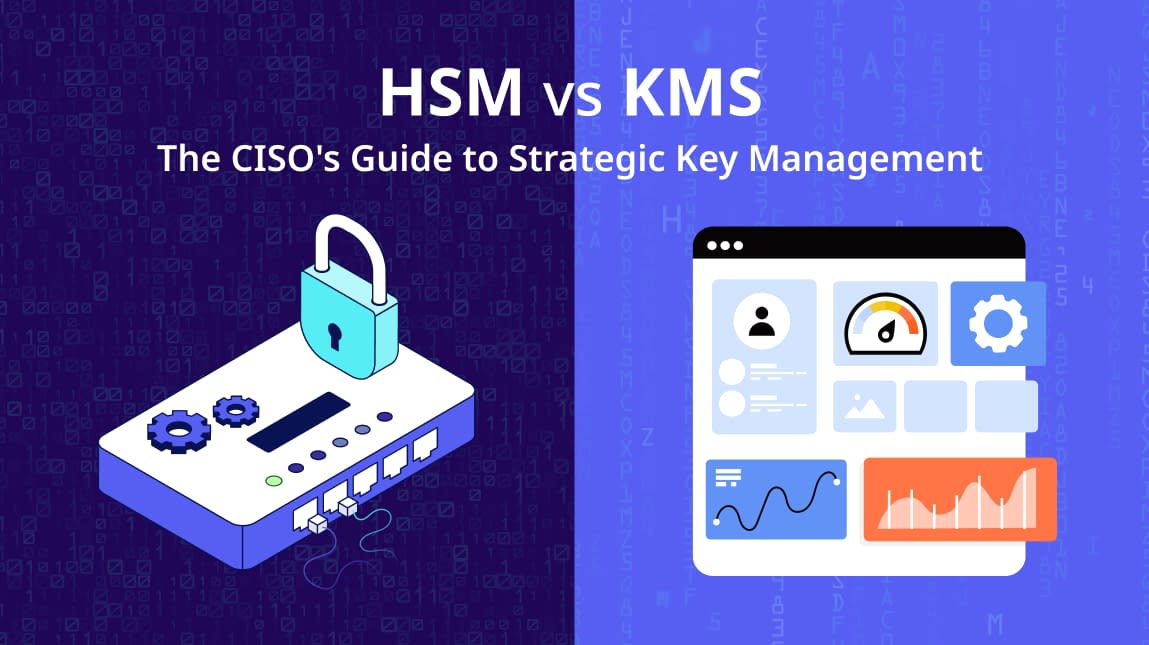The financial industry is built on trust, and a crucial component of that trust is the secure handling of sensitive financial data and personally identifiable information (PII). In light of the financial services industry’s complex regulatory landscape, protecting this data is not just a best practice, it’s a legal imperative. The stakes are higher than ever, with data breaches becoming increasingly common and the costs of non-compliance skyrocketing. According to IBM’s “Cost of a Data Breach Report 2024,” the global average cost of a data breach reached a record high of $4.88 million, marking a 10% increase from the previous year. Financial institutions, in particular, faced even greater losses, with average breach costs rising to $6.08 million—22% higher than the cross-industry average—due to the highly sensitive nature of the data they hold. Research has also highlighted the rising cost of compliance, with U.S.-based financial institutions spending an average of $30.9 million annually to meet the demands of ever-evolving regulations.
These challenges are compounded by the increasing volume and complexity of data being generated and stored, making it more difficult than ever to identify, protect, and manage sensitive information.
The Challenging Regulatory Compliance Environment for Banks and Credit Unions
Banks and credit unions operate under a stringent web of data privacy regulations, creating a complex compliance landscape. In the US, banks are primarily governed by the Gramm-Leach-Bliley Act (GLBA), which mandates safeguarding customer financial information. This includes implementing safeguards to protect the confidentiality, integrity, and security of customer records and information. Banks must also adhere to regulations like the Fair Credit Reporting Act (FCRA), which governs the handling of credit information, and the Sarbanes-Oxley Act (SOX), which impacts financial reporting and internal controls, including data security related to financial information. For institutions handling cardholder data, the Payment Card Industry Data Security Standard (PCI DSS) is mandatory.
Credit unions, while also subject to GLBA, operate under a slightly different regulatory framework. They are chartered under the Federal Credit Union Act and are overseen by the National Credit Union Administration (NCUA). The NCUA has its own regulations concerning data security and member information protection, often mirroring and expanding upon GLBA requirements. Furthermore, credit unions, like banks, must comply with FCRA, SOX, and PCI DSS where applicable.
Both banks and credit unions must also navigate the increasing patchwork of state-level data privacy laws. The California Consumer Privacy Act (CCPA), now the California Privacy Rights Act (CPRA), has set a precedent for other states, with many enacting or considering similar legislation. These state laws often impose stricter requirements than federal regulations, adding another layer of complexity. Examples include the Virginia Consumer Data Protection Act (VCDPA), the Colorado Privacy Act (CPA), and similar laws in other states. These laws grant consumers greater control over their personal data, including the right to access, correct, and delete their information.
In Canada, financial institutions must comply with the Personal Information Protection and Electronic Documents Act (PIPEDA) at the federal level. PIPEDA establishes rules for the collection, use, and disclosure of personal information. In addition to PIPEDA, various provincial privacy laws, such as those in Alberta, British Columbia, and Quebec, add further requirements for financial institutions operating within those provinces.
These diverse and evolving regulations, both nationally and at the state/provincial level, make it incredibly challenging for financial institutions to maintain compliance and avoid hefty penalties. Staying up-to-date with the latest regulatory changes and implementing the necessary safeguards is a continuous and resource-intensive process. Utilizing manual processes to ensure compliance is resource intensive, expensive and risky.
Finding Your Sensitive Data: The Need for a Data Discovery Tool
Before sensitive data can be protected, it must first be identified. This seemingly simple task is often incredibly complex, especially within large financial institutions with vast data repositories. This is where a robust data discovery tool becomes indispensable. For financial institutions, identifying Personally Identifiable Information (PII), Payment Card Information (PCI), Protected Health Information (PHI) if applicable, and other sensitive data is paramount. This includes not only obvious data points like names, addresses, and social security numbers, but also less obvious data that can be used to identify an individual, such as transaction history, account balances, and even IP addresses.
A comprehensive data discovery tool should be pre-programmed with financial services industry regulations like SOX, GLBA, FCRA, PCI DSS, and the various state and provincial privacy laws mentioned earlier. ADM is pre-built with knowledge of regulatory definitions of sensitive data, which enables the platform to automatically locate all sensitive data regulated under these regimes, eliminating the need for manual effort required. Accutive Security’s ADM rapidly identifies all sensitive data to support efficient auditing and reporting. ADM comes pre-configured with the specific data patterns and identifiers associated with these regulations, ensuring comprehensive coverage. Furthermore, ADM can be customized with machine learning technology to identify data specific to an institution’s unique systems and data structures.
Beyond regulatory compliance, a robust data discovery tool helps financial institutions understand their data landscape. It provides a clear picture of where sensitive data resides, how it is used, and who has access to it. This visibility is crucial for developing effective data protection strategies. By proactively identifying sensitive data, your financial institution can gain a clear understanding of your data landscape and prioritize your protection efforts. This includes not only masking sensitive data but also implementing access controls, encryption, and other security measures to mitigate risks. As mentioned above, data discovery tool also plays a vital role in supporting audits. By quickly and accurately identifying sensitive data, it streamlines the audit process and reduces the time and resources required for compliance checks. This proactive approach to data discovery can empower your financial institution to not only meet regulatory requirements but also strengthen your overall security posture.
Constant Usable Test Data for Digital Transformation Needs
Digital transformation initiatives, including development, testing, analytics, and even training, require constant streams of secure and realistic data. Financial institutions are increasingly relying on these initiatives to improve customer experience, develop new products and services, and gain a competitive edge. However, using production data in non-production environments poses significant security risks. Exposing sensitive customer information in development, testing, or analytics environments can lead to data breaches, reputational damage, and regulatory fines. Therefore, a robust test data management (TDM) strategy to find and anonymize data before moving it into nonproductione environments is essential.
ADM is a test data management platform that provides secure, usable test data using advanced masking techniques. It addresses the critical need for realistic data in non-production environments while protecting sensitive information. Many financial institutions require not only masking existing data but also the generation of fictitious data. ADM excels at generating realistic data such as fictitious customer profiles that demographically match, including employer information with matching email domain, nearby addresses with matching ZIP/Postal codes, and phone numbers with matching area codes. This synthetic data maintains the statistical properties of real data, ensuring accurate testing and analysis, without compromising privacy.
Beyond simply masking individual data points, maintaining enterprise referential integrity across all databases is crucial for accurate testing and analysis. Applications often rely on relationships between different data elements, and breaking these relationships can lead to inaccurate test results and flawed insights. ADM ensures this integrity, preserving the complex relationships between data elements even after masking or synthetic data generation. This allows developers and testers to work with data that accurately reflects the production environment, leading to more reliable testing and faster development cycles.
ADM’s ability to provide secure, usable, and realistic test data empowers financial institutions to confidently leverage data for innovation without compromising security. It enables them to accelerate their digital transformation initiatives, develop new products and services more quickly, and gain valuable insights from data analytics, all while maintaining compliance with data privacy regulations. By decoupling development and testing from production data, ADM minimizes the risk of data breaches and ensures the continued trust of customers.
Challenges of Masking Core Banking Data
Among the many masking challenges faced by financial insitutions, masking core banking data may be the most unique and significant. This data is not only extremely sensitive, encompassing detailed financial transactions, account balances, and customer profiles, but it is also often complex in structure. Core banking systems, the backbone of any financial institution, often store data in intricate relational databases, sometimes with embedded XML structures or other specialized formats. These systems are designed for high performance and transactional integrity, not necessarily for easy data discovery or masking.
Consider the unique data structure of Temenos Transact (T24), a widely used core banking system by hundreds of global financial institutions. Its embedded XML tables, large volume of data, and complex interdependencies between data elements require a purpose-built solution for effective masking. Traditional masking techniques might struggle with these complexities, potentially corrupting data integrity or disrupting critical business processes. For instance, simply replacing account numbers with random values might break referential integrity, rendering the test data useless. Similarly, modifying XML structures in the test data can lead to application errors.
Accutive Security’s ADM for Temenos Transact is specifically designed to address the unique complexities of T24 and other core banking systems. It understands the intricate data structures and relationships within these systems, ensuring effective masking without disrupting critical business processes. ADM can selectively mask specific data elements within XML structures, preserving the overall integrity of the data. It also maintains referential integrity across related tables and databases, ensuring that test data remains consistent and usable. Furthermore, ADM is optimized for the high volume of data typically found in core banking systems, ensuring efficient masking without impacting performance. This purpose-built approach is essential for financial institutions that rely on core banking systems for their daily operations. It allows them to protect sensitive data while maintaining the functionality and integrity of their critical systems.
One Solution for All Data Discovery and Masking Needs
Many financial institutions rely on multiple data discovery and masking processes, often using different tools or even manual methods. This fragmented approach, with disparate systems and inconsistent processes, can be incredibly inefficient and significantly increase the risk of errors. Managing multiple tools requires specialized expertise for each, leading to higher training costs and increased complexity. Manual masking processes are particularly prone to human error, leaving sensitive data vulnerable. Furthermore, this fragmented approach makes it difficult to gain a holistic view of the organization’s data landscape, hindering effective data governance.
The optimal solution is a comprehensive, all-in-one data discovery, subsetting, and masking tool that can address the diverse data needs of a modern financial institution. Such a platform should seamlessly integrate with various systems and applications, including core banking platforms like Temenos Transact, lending platforms, CRM systems, and data warehouses. Accutive Security’s ADM provides this comprehensive functionality, offering a single platform for all data discovery and masking needs.
ADM rapidly discovers, subsets, and masks sensitive data in accordance with pre-programmed data compliance regulations, including GLBA, FCRA, SOX, PCI DSS, and various state and provincial privacy laws. Its pre-built rules and data dictionaries accelerate the identification of sensitive data, reducing the time and effort required for compliance. Beyond pre-built rules, ADM allows for custom scripts using Groovy, providing the flexibility to address unique data masking requirements and integrate with custom applications. This adaptability is crucial for financial institutions with complex IT environments.
ADM can replace manual masking processes and several less capable tools with one complete platform, saving significant time and money. By consolidating data discovery and masking into a single platform, financial institutions can streamline their data protection efforts, reduce operational costs, and improve overall efficiency. This streamlined approach simplifies data protection, reduces the total cost of ownership, and minimizes the risk of errors. Furthermore, a unified platform facilitates better data governance by providing a centralized view of sensitive data and masking activities. This comprehensive approach empowers financial institutions to effectively protect sensitive data across their entire enterprise, ensuring compliance and maintaining customer trust.
Get Started
Protecting sensitive data is a critical responsibility for financial institutions. In today’s increasingly complex regulatory landscape and with the rising costs of data breaches, a robust data masking solution is essential. Accutive Security’s ADM solution offers a purpose-built, comprehensive approach to data discovery and masking, helping banks and credit unions navigate these challenges and secure their valuable data assets.
- Identify and locate sensitive data: Discover PII, PCI, and other sensitive data across various systems and applications, including core banking platforms, lending platforms, CRM systems, and data warehouses.
- Leverage advanced masking capabilities: Accelerate the efficiency of data masking processes with pre-built advanced masking functionality, and the ability to custom code your own unique masking requirements.
- Maintain referential integrity: Ensure consistency and accuracy of masked data across related tables and databases, preserving the relationships between data elements for reliable testing and analysis.
- Comply with regulations: Meet the requirements of various data privacy regulations, including GLBA, FCRA, SOX, PCI DSS, CCPA, PIPEDA, and other state and provincial laws.
- Streamline data protection: Consolidate data discovery and masking processes into a single platform, reducing complexity, improving efficiency, and minimizing the risk of errors.
- Support digital transformation: Provide secure and realistic test data for development, testing, analytics, and training initiatives, enabling innovation without compromising security.
Ready to take control of your sensitive data and strengthen your security posture? Discover why ADM is Gartner’s highest rated data masking solution. Start with a personalized expert consultation to assess your specific needs and challenges. This consultation will be followed by a tailored demo of ADM, showcasing how it can address your unique requirements and integrate with your existing systems.












Comment